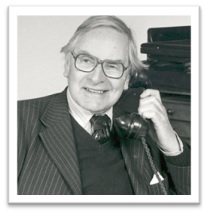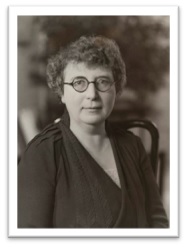
History of the Samaritans
The Samaritans are a well-known and respected charity that has just celebrated its seventieth anniversary of providing support to people in crisis over the telephone. But it is a charity that has undertaken much more than that, it has operated in a lacuna of public services, even as the welfare state developed. The assistance it provided was daring, with ordinary people taking great risks to support those in grave difficulty. Refusing to judge its clients, determined to turn no person away, its founder inspired thousands of people to join a nationwide service.

I am undertaking a PhD researching the foundation and development of the charity Samaritans, using an oral history of those who volunteered over fifty years ago and through a review of the charity’s archived material.
No academic study has been undertaken into its history to consider what it can tell us about voluntary action, religious faith and attitudes to mental health, suicide and contemporary problems in the middle to late twentieth century. It was preceded and linked with the Toc H movement, which was founded in the First World War by Anglican clergyman Phillip “Tubby” Clayton. Its ethos was one of fellowship and service, initially involving servicemen but then more widely to unemployed, homeless and lonely people. Their help was principally practical and explicitly religious, but its adoption of befriending techniques was strongly echoed in the Samaritans, whose founder was involved in a Toc H branch. Toc H members were also involved in establishing Samaritans, setting up local branches like Nottingham Samaritans.
A study of the Samaritans is made more difficult because of their prizing of confidentiality, even secrecy, about those who contact them and even themselves. Yet their founder was a public figure whose article in the Picture Post newspaper triggered the establishment of the charity. Their name, based on a biblical parable, is said to have been coined by a journalist in the Mirror yet their founder, Chad Varah was an Anglican minister who forbad proselytization and condemned the strictures of organised religion. He believed in the value of talking about sex and sexuality and offered his services as a sex therapist. He built up a group of people to offer someone to talk to about any problems over the telephone or in person, establishing long-term befriending services between clients and a volunteer who would meet regularly over months or years.
The Samaritans began in 1953 and by the 1960s it rapidly expanded across the United Kingdom and into Ireland. My research will not just consider the establishment of the charity in London but its expression across the British Isles by those motivated by Chad Varah’s conception. This includes people like Dr Doris Odlum, President of the British Medical Womens Association in 1950, founding fellow of Royal College of Psychiatrists, advisor to the Home Office on the amendment of the laws of Suicide and Life President of the Samaritans movement.

I am keen to contact anyone who volunteered for the Samaritans from 1953 to 1980 who would be willing to share their experiences. If you would like to contribute towards my research please contact me via my email, michael.george@hud.ac.uk
Michael George
PhD candidate
University of Huddersfield
*Samaritans. (n.d.). Chad Varah, founder of Samaritans, answers the phone [black and white print]. https://media.samaritans.org/images/Chad_phone_1000-square.width-728.jpg
**Bassano Ltd. (1939). Doris Maude Odlum [bromide print]. NPG x83882. https://www.npg.org.uk/collections/search/person/mp51366/doris-maude-odlum